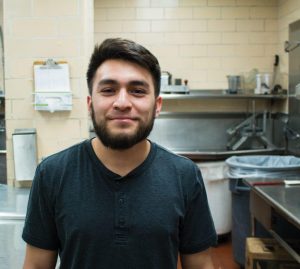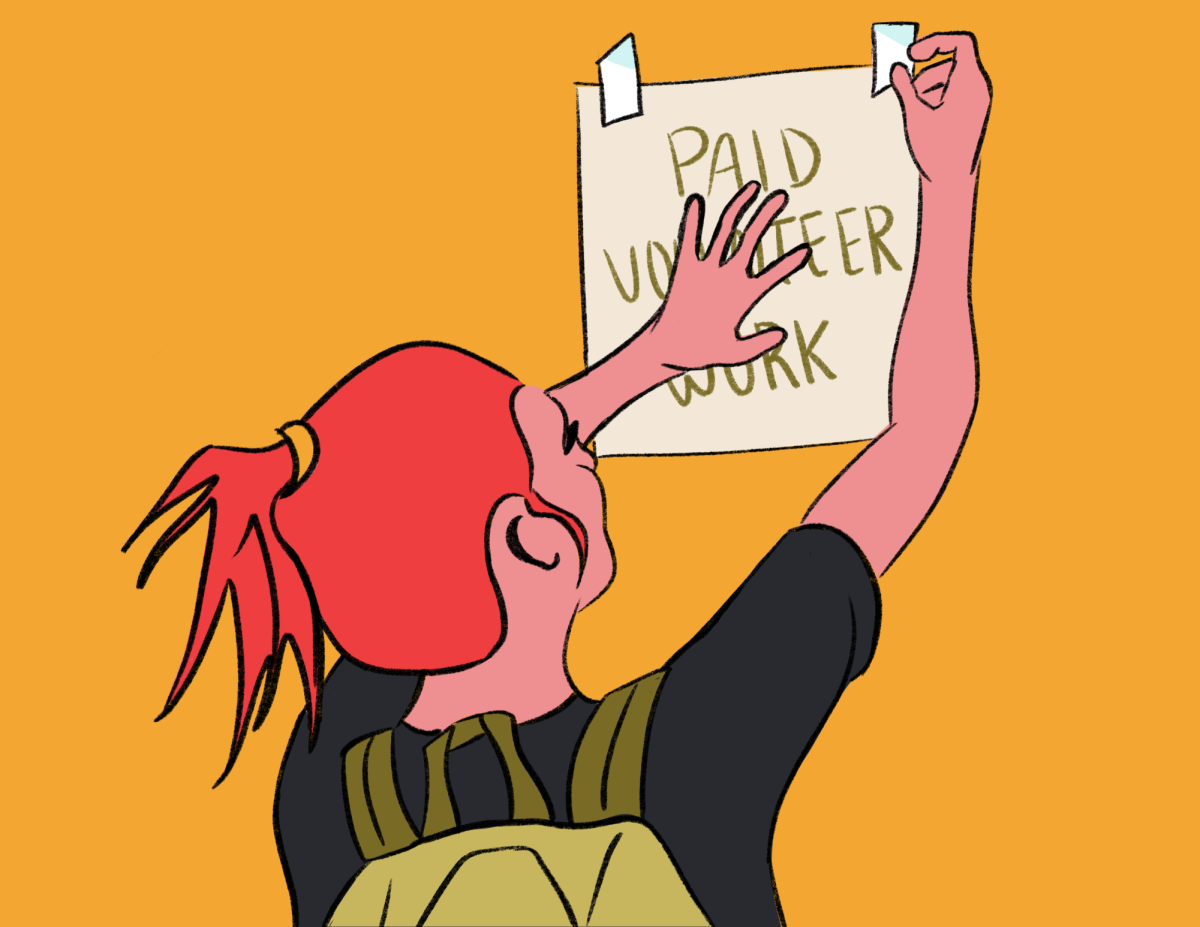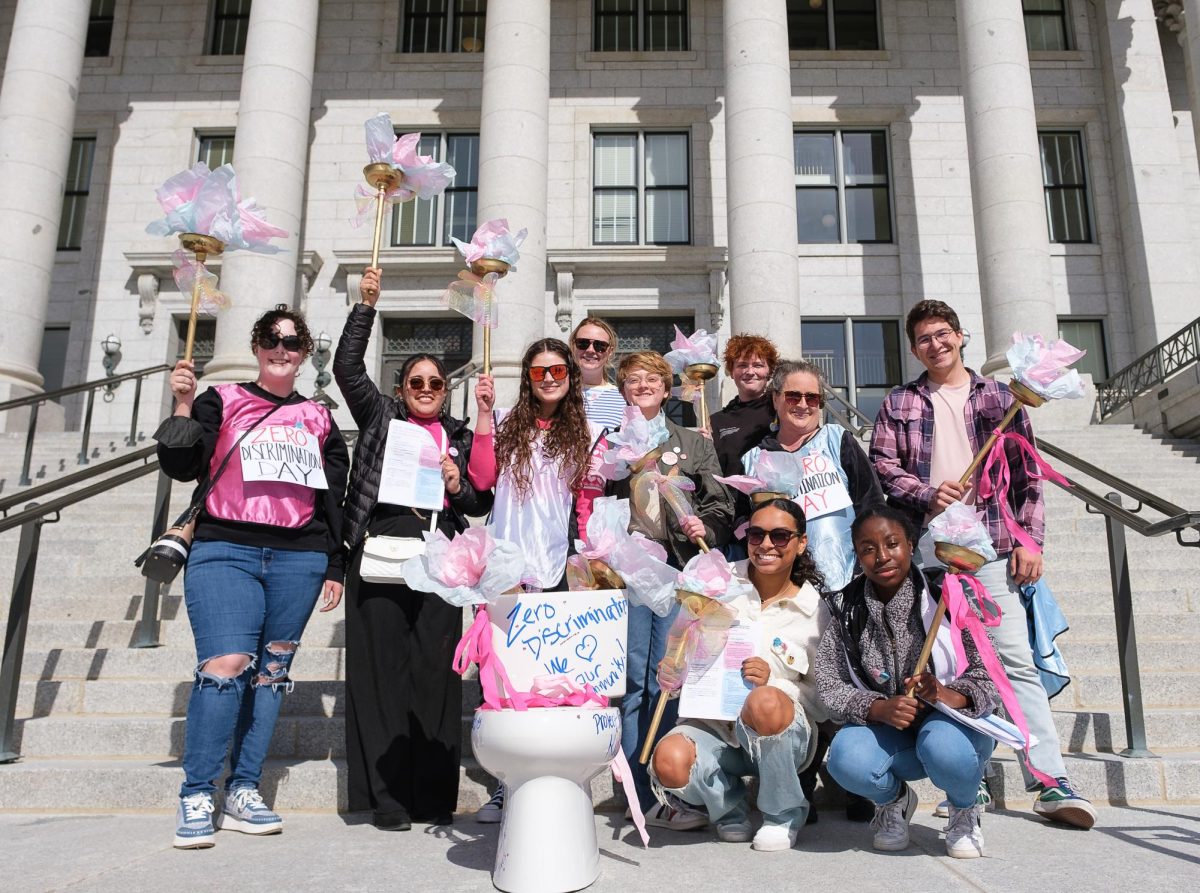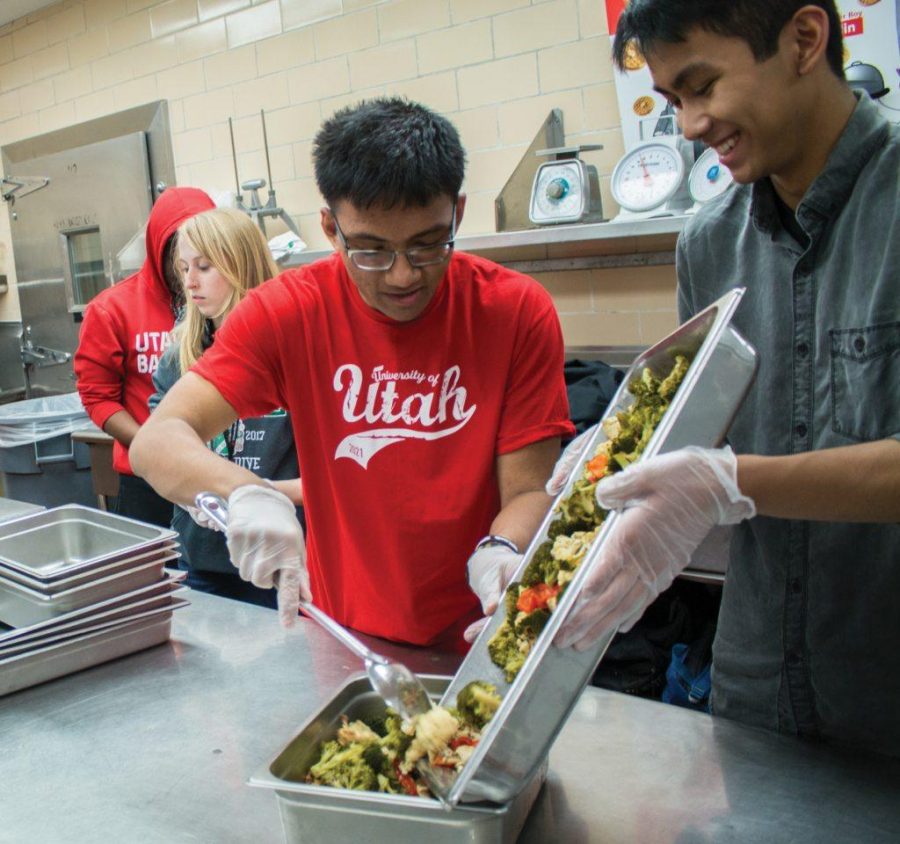On a Friday afternoon in January, Ivan Cardenas awaited his team inside the kitchens at the University of Utah Student Union Building. Upon their arrival, they would spend the next hour collecting and packaging unused food from the Union’s kitchens, which they would then take to the Rescue Mission, a homeless shelter located at 463 South and 400 West in downtown Salt Lake City.
The group of about eight U students showed up with smiles on their faces and quickly donned aprons, as they do every week. They knew the drill and got to work transferring the food, which had been laid out for them in wide pans on a tall food rack. Using their own dishes to avoid using non-reusable packaging material, they moved the food to new containers and prepared it for transportation.
The Purpose
The Food Recovery Network, spearheaded by Cardenas, has the goal of both reducing food waste and feeding the homeless — an effort they hope will both reduce hunger and improve the environment.
“Food Recovery Network is dedicated to fighting food waste and hunger in the community,” Cardenas explained. “We catalogue and repurpose food that would ordinarily be wasted. We also document the waste in kitchens and come up with information for them about what they can do better and how they can change.”
The cafeteria in the Union often prepares more food than students end up purchasing. The resulting food waste is significant because when repurposed, this food can feed more mouths, according to Cardenaas.
The Food Recovery Network was established in fall 2015 and has been expanding since. The group now collects food from multiple kitchens, including those in the Union, the Peterson Heritage Center (PHC) and Primary Children’s Hospital.
“We started talking to Primary Children’s about working in their kitchens, and they got really excited about it and were ready to help out,” Cardenas said. “We go there every other Friday and collect a ton of food, usually various packages like loaves of bread, canned food — mostly pantry stuff.”
[media-credit name=”Cara MacDonald” align=”alignnone” width=”300″] [/media-credit]
[/media-credit]
The Service
The group works on a standard schedule each week. They spend Wednesday evenings at the PHC, where they gather whatever was not eaten throughout that day as well as anything preserved from the prior week. On Tuesdays and Fridays, they find themselves knee-deep in work at the Union, which allows food waste to build up over the few days in between visits and allows them to donate a large amount of food. Every other Friday is dedicated to working at Primary Children’s Hospital.
The Food Recovery Network’s efforts have been valuable to the kitchens they work with as well as the local community. The volunteers have seen a direct, impact from their service, and Cardenas has seen the fruits of his efforts due to his long-term commitment to the project.
“As a volunteer making donations to the homeless shelter, I was able to meet an individual who I saw every time I went to deliver food,” Cardenas said. “He was always sleeping on the floor or on the rocks, and over time we sort of got to know each other. One day I stopped seeing him and didn’t have any interactions with him for quite a while. Eventually, some time later, I went into their kitchen and saw him working there. The homeless shelter had accepted him into their program and were providing him with an income, shelter, food, a hot shower, medications. … It was amazing to see someone go from living on the streets to having their own home and life.”
Looking to Do More
The Food Recovery Network is looking to expand and get involved with other kitchens around campus. They are willing to work with those that are more spread out and are not necessarily tied to dining services. The group also hopes to start serving more homeless shelters.
“There is an awful lot of food waste in the world,” Cardenas said.
He and his volunteers are working to combat food waste and excess, but they also want to take advantage of how much waste there is to help those who are not able feed themselves.
“We generally donate around [500 to] 1,000 pounds of food per week,” Cardenas said. “This amount of food could most definitely be spread out to a multitude of locations, and we are working on reaching out to more shelters to make that happen.”
Since its inception in 2015, the Food Recovery Network has repurposed over 30,000 pounds of food in total. Its donations have included a wide variety of food items from mashed potatoes, to chicken breasts, to bananas and to guacamole. The group primarily takes what the kitchens have saved up and finds ways to make it a solid food option for those at the homeless shelter.
It also intends to expand the work into more kitchens around Salt Lake City. Currently, there is another organization on campus called Excess, which works with restaurants that are off campus to put extra food to good use. The Food Recovery Network is letting Excess take care of working with off campus kitchens for now, but it believes there is a definite possibility for expansion in the future.
Cardenas encourages anyone interested in volunteering to email [email protected].
“Students on campus [who] are looking for something to do or want to get involved and do some community service can feel free to come with us,” Cardenas said. “We have our set schedule and there’s no real time commitment. If you want to come once, you can, [and] if you want to come to every session, you can.”
@TheChrony




















